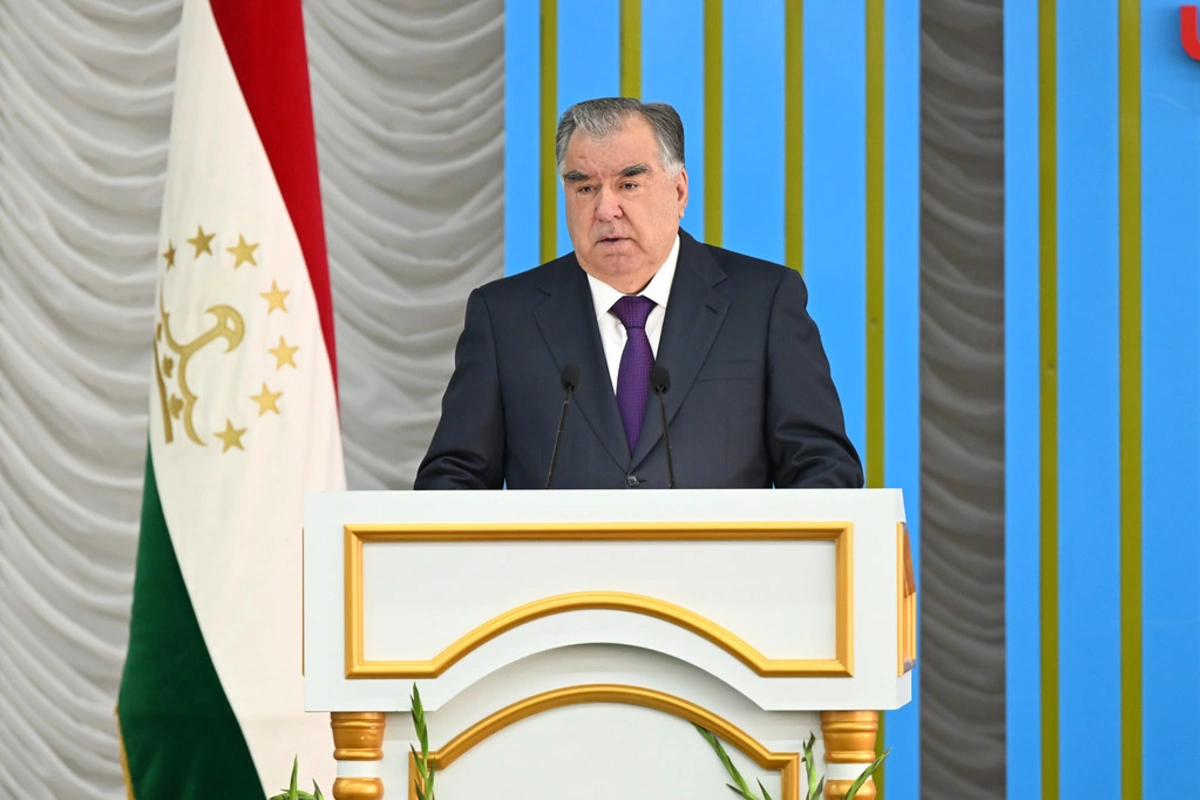
As a significant step, Tajikistan initiated a UN General Assembly resolution declaring 2025 as the Year of Glaciers Preservation, which has since led to the creation of an international trust fund for glacier protection under the United Nations.
P:hoto credit: Press Service of President of Tajikistan
Tajikistan aims to transform itself into a green country by 2037, relying fully on renewable energy sources by 2032, said President Emomali Rahmon at the COP29 summit in Baku, The Caspian Post reports.
Rahmon highlighted that Tajikistan already generates 98% of its electricity from hydropower, positioning the nation as a low emitter with a global rank of 130th in carbon dioxide emissions.
The president emphasized the critical connection between water and climate issues, drawing attention to the alarming rate of glacier melting driven by climate change. "We must pay special attention to the accelerated melting of glaciers," he stated, noting the essential role glaciers play in the region’s water supply. As a significant step, Tajikistan initiated a UN General Assembly resolution declaring 2025 as the Year of Glaciers Preservation, which has since led to the creation of an international trust fund for glacier protection under the United Nations. "Tajikistan has contributed its share to this fund and calls on all partners to support this initiative," Rahmon said.
Tajikistan also plans to host a high-level international conference on glacier preservation in Dushanbe in May 2025, a move Rahmon sees as essential to fostering global cooperation. Alongside France, Tajikistan has successfully advocated for the UN to declare 2025 to 2034 as the Decade of Action for Cryospheric Sciences, promoting research on frozen water bodies critical for climate stability.
Rahmon also addressed concerns regarding the Caspian Sea, which faces significant environmental threats. "Saving the biggest lake in the world is a matter of common concern that requires long-term international cooperation," he noted, urging collaborative efforts to protect the Caspian Sea for future generations.
Share on social media